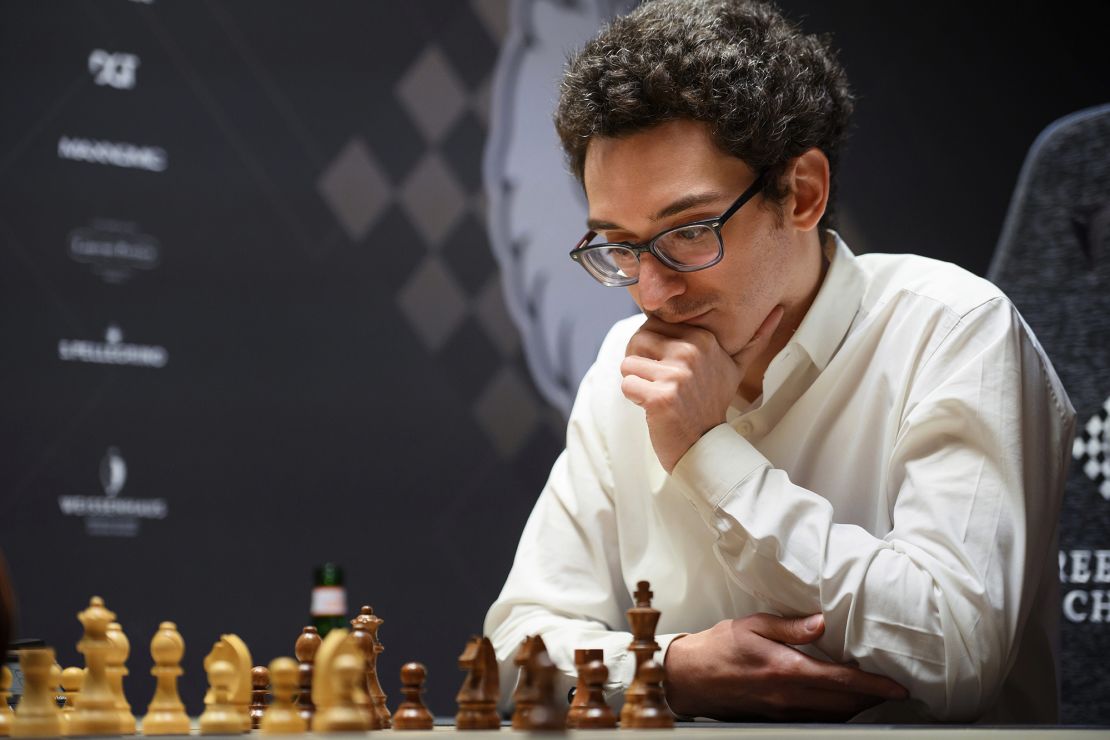For centuries, chess has been the ultimate test of strategy, intellect, and endurance. Now, in a historic move that formally unites the world’s oldest strategy game with its fastest-growing digital successor, competitive online chess has officially been inducted into the Esports World Cup (EWC) 2025 lineup. Staged in Riyadh, Saudi Arabia, the tournament featured a massive $1.5 million prize pool and saw the world’s top Grandmasters compete in a thrilling rapid-fire format. This groundbreaking integration, spearheaded by a multi-year partnership with Chess.com and endorsed by the game’s greatest living player, Magnus Carlsen, marks a watershed moment. It not only confirms the status of fast-paced online chess as a legitimate esport but also unlocks a vital new audience and financial stream for the global chess community.
The EWC Crossover: Validating the Digital Queen
The inclusion of chess in the Esports World Cup 2025 was the most talked-about development in the competitive gaming world, representing a strategic validation of the game’s soaring digital popularity. Fueled by pandemic-era streaming booms, the success of the Netflix series The Queen’s Gambit, and the rise of charismatic online personalities like Hikaru Nakamura, chess has proven its ability to captivate millions of viewers. The EWC, known for featuring multi-million dollar tournaments in major video game titles like Dota 2 and League of Legends, recognized the competitive depth and global reach of digital chess.

This formal integration, backed by a significant $1.5 million prize purse, transcends simple recognition; it firmly positions competitive online chess as a cornerstone of the burgeoning esports ecosystem. The key distinction lies in the medium itself: online play introduces unique elements, such as instant time controls and pre-move capabilities, which separate it from traditional over-the-board classical chess. This digital adaptation creates a unique competitive skill set, rewarding speed and intuition as much as deep, long-form calculation, thereby making the game distinctly suitable for the high-energy, fast-paced world of digital spectatorship.
Further lending credence to the transition was the appointment of Magnus Carlsen, arguably the greatest chess player in history, as the Global Ambassador for the EWC chess event. Carlsen’s endorsement, alongside the partnership with leading online platform Chess.com, showcased a unified front between the traditional establishment and the digital future. This powerful alliance was crucial in connecting the intellectual demands of chess with the passionate, global audience of esports fans, highlighting the shared values of strategy, competitive spirit, and mental fortitude.
The Moneyball Moment: Esports Teams Enter the Endgame

The announcement of chess’s inclusion in the EWC immediately triggered an unprecedented flurry of activity in the professional scene, leading to what many described as a “moneyball moment” for the ancient game. Major esports organizations, traditionally focused on video games, went on a historic spending spree, signing elite Grandmasters to their rosters. The EWC operates a unique club championship model, where organizations accumulate points across all featured games to compete for a larger overall prize fund. This structure made every featured title, including chess, a vital source of points.
The most notable signings saw Magnus Carlsen join the global powerhouse Team Liquid, which already boasted strong rosters in games like League of Legends. Rival organizations quickly followed suit, with Saudi-based Team Falcons securing the services of popular Grandmaster and streamer Hikaru Nakamura and former World Championship contender Alireza Firouzja. Other top players, including former World Champion Ding Liren, were also scooped up by teams like LGD Gaming, signaling a serious, long-term commitment by the esports world to the competitive chess scene.

This trend did more than just boost player incomes; it provided chess professionals with the infrastructure, stability, and exposure that comes with a major esports club. Players now benefit from dedicated management, content teams, and greater brand recognition, transforming the solitary profession of a chess Grandmaster into a recognized role within a larger, more structured athletic organization. This synergy elevates the competitive experience and broadcasts the game to a colossal, untapped youth demographic.
Rapid Fire Strategy: The 10+0 Format
To align with the viewing expectations of the esports audience, the EWC adopted the Rapid 10+0 format, ensuring matches were intense, decisive, and highly entertaining. This time control allocates each player ten minutes for the entire game with no time increment added after each move, unlike slower formats. The resulting compressed action forces players to make complex, high-stakes decisions under immense time pressure, a dynamic that is tailor-made for streaming and live event commentary.
In contrast, the prestigious FIDE World Cup, which also took place in 2025 (in Goa, India), uses a knockout format beginning with Classical time controls, where games can last for several hours and are designed for deep, deliberate calculation. The EWC’s rapid format, however, emphasizes strategic preparation that leads to sharp, tactical positions where a single, instantaneous mistake can be fatal. This accelerated pace guarantees swift, clear results and eliminates the long, slow maneuvering often associated with traditional elite chess.
The adoption of the 10+0 time control reflects a shrewd understanding of the digital spectator. The EWC format demands both the strategic brilliance of the highest level of chess and the breakneck speed of competitive gaming. It highlights the mental ‘APM’ (Actions Per Minute) of Grandmasters, making their quick-thinking prowess visible and exciting. This fast format was instrumental in delivering the high drama required to compete with other esports for attention.
The King of Kings: Carlsen’s Dominance on the Digital Stage
When the EWC Chess tournament concluded in Riyadh, the result underscored the enduring versatility of the game’s leading figure. Magnus Carlsen of Team Liquid, who had qualified earlier in the year by winning the Chessable Masters event, navigated the challenging GSL-style group stage and single-elimination bracket to take the inaugural EWC title. His victory was hard-earned, culminating in a final match against Alireza Firouzja of Team Falcons, where Carlsen demonstrated supreme control in the high-pressure rapid time setting.
Carlsen’s success in this format is critical because it validates the argument that elite chess talent is transferable across time controls. While he is celebrated for his classical reign, his dominance in rapid and blitz formats shows a unique ability to adapt his profound understanding of the game to the clock’s ticking constraint. His victory was not just an individual win; it was a defining moment for Team Liquid, contributing essential points toward the overall EWC Club Championship prize.
The competitive landscape saw other top players, including Carlsen’s teammate Fabiano Caruana and rival Hikaru Nakamura, battle intensely throughout the event. Carlsen’s ability to prevail against a field packed with the world’s most brilliant rapid players, many of whom are specialists in the online format, cemented his legacy as the gold standard in every competitive sphere of the game.
The Future: Permanent Fixture and Pathway to the Top
The integration of chess into the Esports World Cup is far from a one-off experiment. The EWC Foundation and Chess.com officially announced a three-year partnership, establishing chess as a permanent fixture on the esports calendar through at least 2027. This long-term commitment provides stability and a clear future for the digital competitive circuit, ensuring that chess continues to receive major funding and global visibility.
For players, the EWC represents a significant new revenue stream, with its $1.5 million prize pool dwarfing the prize money of many independent chess tournaments. Furthermore, the qualification pathway through the Champions Chess Tour now creates a well-defined professional circuit that runs parallel to the traditional FIDE events. This digital path offers an alternative route to the top for Grandmasters specializing in rapid play and who are popular content creators.
In its broader impact, the EWC has successfully introduced chess to a massive, global, and highly engaged audience that might never have tuned in to a classical tournament. By showcasing the intense mental strategy and club-based competition, the event accelerates the growth of chess as a spectator sport, ensuring a vibrant ecosystem for both elite professionals and the next generation of players. This fusion is not just a trend; it is the strategic evolution of a 1,500-year-old game into a modern-day digital spectacle.




